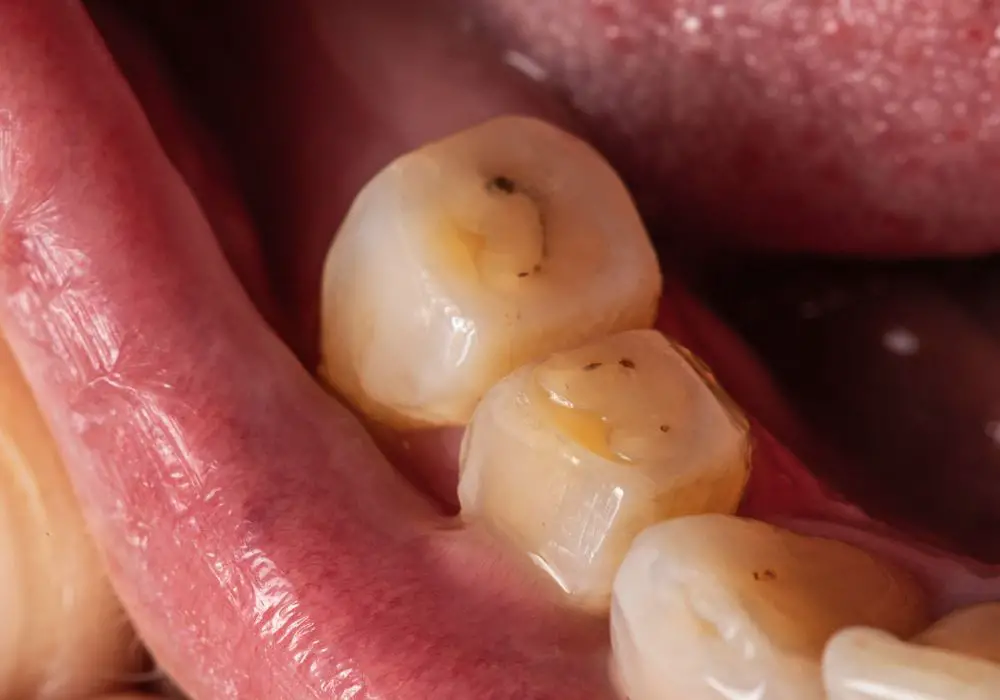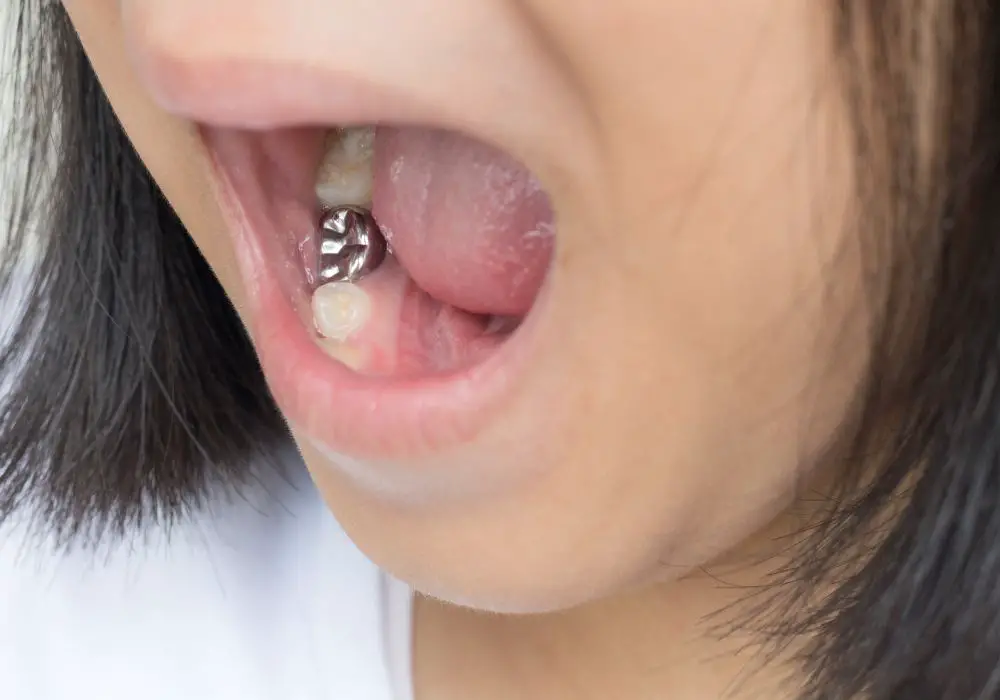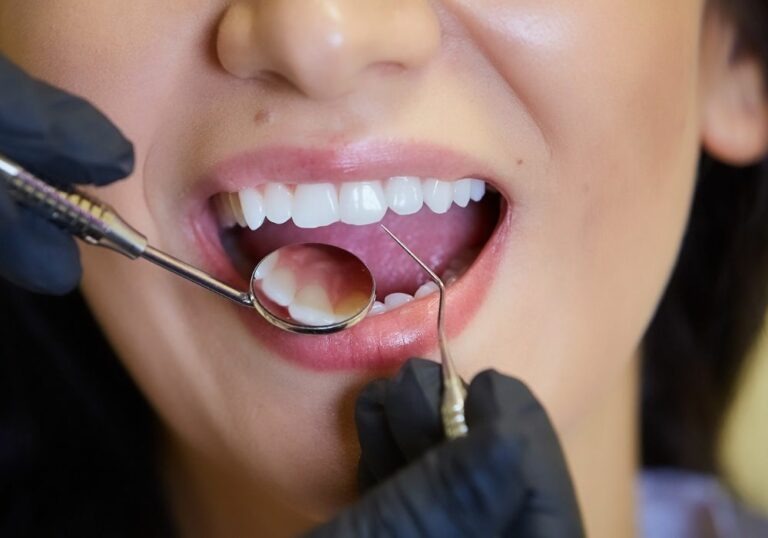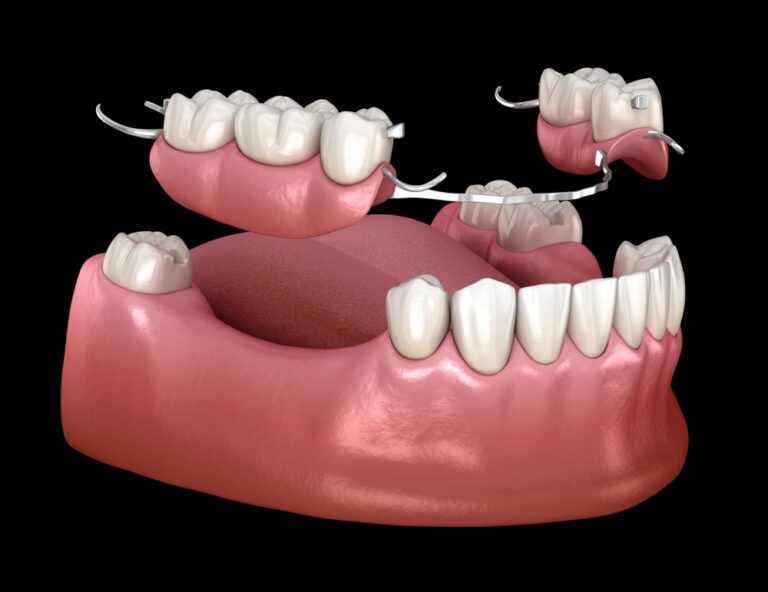Are you wondering if your child can get white caps for their teeth? The answer is yes! While stainless steel crowns have been the traditional choice for children’s teeth, there are now alternatives available, including white zirconia dental crowns. These crowns are biocompatible, durable, and incredibly aesthetic, making them a great choice for children.
One of the main reasons a crown may be needed on a child’s tooth is due to tooth decay. In fact, 42% of children between the ages of 2-11 will have at least one cavity. Crowns can help reinforce and protect baby teeth until the permanent teeth come in to replace them. While they may be more expensive than fillings in the short term, they can be more cost-effective in the long run. Plus, they offer a good way to protect back molars, which typically fall out around age 12.
Understanding White Caps for Children’s Teeth
If your child has dental issues that require more than just a filling, your dentist may suggest getting a white cap. White caps, also known as crowns, are a common dental procedure for children. They are used to cover a damaged or decayed tooth to restore its shape and function.
White caps for children’s teeth are made of different materials, including stainless steel, silver, and porcelain. However, white zirconia or ceramic crowns are becoming popular because they are more aesthetically pleasing and blend in with the natural teeth.
The cost of white caps for children’s teeth can vary depending on the material used and the complexity of the procedure. On average, they can cost between $1,000 and $2,500 per tooth.
It’s important to note that white caps for children’s teeth are not a permanent solution. They may need to be replaced as your child’s teeth grow and change. Your dentist will monitor your child’s teeth and determine when it’s time for a replacement.
Overall, white caps for children’s teeth can be a great option to restore a damaged or decayed tooth. Talk to your dentist to determine if this procedure is right for your child.
Why Children Might Need White Caps?
As a parent, you want the best for your child’s oral health. Sometimes, despite your best efforts, your child may develop dental issues that require more extensive treatment. One such treatment is getting white caps for your child’s teeth.
Here are some reasons why your child might need white caps:
Tooth Decay
Tooth decay is a common dental problem among children. If left untreated, it can lead to cavities and even tooth loss. White caps can help prevent the progression of tooth decay and save your child from requiring more extensive dental repair in the future by correcting cavities and avoiding future ones.
Tooth Damage
Children are active and love to play. Unfortunately, this can sometimes result in tooth damage. Chipping can occur when children grind their teeth or as a result of chewing forces on back teeth. White caps can help restore damaged teeth and prevent further damage.
Esthetics
In the past, metal crowns were the only option available for kids. However, they are not very esthetic and can be a source of embarrassment for children. White caps, on the other hand, are tooth-colored and blend in seamlessly with natural teeth. This can help boost your child’s confidence and self-esteem.
Longevity
White caps are strong and long-lasting. They require less tooth structure removal than other types of crowns, making them a great option for children. They are also less likely to de-bond, which means they are less likely to come loose or fall off.
In conclusion, there are several reasons why your child might need white caps. From preventing tooth decay to restoring damaged teeth and improving esthetics, white caps can be a great option for your child’s oral health. If you think your child might benefit from white caps, talk to your dentist to see if they are the right choice for your child.
Procedure of Getting White Caps

If your child needs white caps for their teeth, you may be wondering what the procedure entails. Here’s what you can expect:
- Consultation: The first step is to schedule a consultation with a pediatric dentist. They will examine your child’s teeth and determine if white caps are necessary. They will also explain the procedure in detail and answer any questions you may have.
- Preparation: Before the white caps can be placed, the tooth or teeth must be prepared. This involves removing any decay and shaping the tooth to fit the cap.
- Impressions: Once the tooth is prepared, the dentist will take impressions of your child’s teeth. These impressions will be used to create the white caps.
- Temporary Caps: While the permanent white caps are being made, your child will wear temporary caps to protect their teeth.
- Placement: Once the permanent white caps are ready, your child will return to the dentist for placement. The dentist will carefully place the cap over the prepared tooth and secure it in place.
It’s important to note that the procedure may vary depending on your child’s individual needs and the dentist’s preferred methods. Be sure to discuss any concerns or questions with your child’s dentist.
Benefits of White Caps for Children’s Teeth
If your child has a decayed tooth or a cavity, white caps, also known as white zirconia dental crowns, can be a great option for restoring their teeth. Here are some benefits of using white caps for your child’s teeth.
Aesthetic Appeal
One of the most significant benefits of white caps is their aesthetic appeal. Unlike traditional stainless-steel crowns, white caps match the natural color of your child’s teeth, making them look more natural. This cosmetic benefit can help boost your child’s self-esteem and confidence.
Prevention of Further Damage
White caps can also help prevent further damage to your child’s teeth. If your child has a cavity or a decayed tooth, a white cap can protect the tooth from further decay and damage. This can help prevent the need for more extensive dental repairs in the future.
Pain Relief
If your child is experiencing tooth pain, a white cap can provide pain relief. A decayed or damaged tooth can cause significant discomfort and pain, making it difficult for your child to eat or speak. A white cap can help alleviate the pain and discomfort, allowing your child to eat and speak more comfortably.
In summary, white caps have several benefits for your child’s teeth, including aesthetic appeal, prevention of further damage, and pain relief. If your child has a decayed or damaged tooth, consider talking to your dentist about the benefits of white caps.
Potential Risks and Concerns

When considering getting white caps for your child’s teeth, it’s important to be aware of potential risks and concerns. Here are a few things to keep in mind:
Allergic Reactions
Some children may have an allergic reaction to the materials used in white caps. It’s important to let your dentist know if your child has any allergies before getting the procedure done. Your dentist may recommend a different type of material if your child is allergic to the standard materials used for white caps.
Discomfort or Pain
After getting white caps, your child may experience some discomfort or pain. This is normal and should go away within a few days. However, if your child continues to experience pain or discomfort, it’s important to let your dentist know.
Long-Term Maintenance
White caps require regular maintenance to ensure they stay in good condition. Your child will need to practice good oral hygiene habits, such as brushing and flossing regularly, to prevent decay and other issues. Additionally, your child may need to avoid certain foods and beverages that can stain or damage the white caps.
Overall, white caps can be a great option for children who need dental work done on their baby teeth. However, it’s important to be aware of potential risks and concerns before making a decision. If you have any questions or concerns, be sure to talk to your child’s dentist.
Alternatives to White Caps for Children’s Teeth
If you are looking for alternatives to white caps for your child’s teeth, there are several options available. These alternatives can be less invasive and less expensive than white caps. Here are a few options to consider:
Fluoride Treatments
Fluoride treatments are a great way to strengthen your child’s teeth and prevent cavities. Fluoride is a mineral that helps to strengthen tooth enamel, making it more resistant to decay. Fluoride treatments are usually applied as a gel or varnish to the teeth. Your child’s dentist may recommend fluoride treatments every six months to a year, depending on their individual needs.
Dental Sealants
Dental sealants are a thin coating that is applied to the chewing surfaces of the back teeth. They are designed to fill in the grooves and pits in the teeth, making them smoother and easier to clean. This can help to prevent cavities from forming in these hard-to-reach areas. Dental sealants are a quick and painless procedure that can be done in just one visit to the dentist.
Regular Brushing and Flossing
One of the best ways to keep your child’s teeth healthy and strong is by practicing good oral hygiene habits at home. This includes brushing twice a day with fluoride toothpaste and flossing once a day. Encourage your child to brush for at least two minutes each time and to reach all areas of their mouth, including the back teeth. You can also help your child to develop good oral hygiene habits by setting a good example and making it a fun and enjoyable activity.
While white caps may be a good option for some children, there are several alternatives to consider. Talk to your child’s dentist about which options may be best for their individual needs. By taking a proactive approach to your child’s oral health, you can help to ensure that they have a healthy and beautiful smile for years to come.
Choosing the Right Dental Care for Your Child

When it comes to your child’s dental care, it’s important to choose the right dentist. A good dentist can make all the difference in your child’s oral health. Here are some tips to help you choose the right dental care for your child:
Look for a Pediatric Dentist
Pediatric dentists specialize in treating children’s teeth, and they have the expertise and experience to provide the best care for your child. They are trained to work with children of all ages, from infants to teenagers, and they understand the unique needs of each age group.
Check the Dentist’s Credentials
Before choosing a dentist for your child, make sure they are licensed and have the proper credentials. You can check with your state’s dental board to verify their credentials and ensure they have no disciplinary actions against them.
Ask for Referrals
Ask your friends, family, and pediatrician for recommendations for a good pediatric dentist. They can provide valuable insight into their experiences with different dentists and help you make an informed decision.
Consider the Office Environment
The office environment can play a big role in your child’s comfort level during dental visits. Look for a dental office that is child-friendly, with a welcoming atmosphere and staff. A good pediatric dental office will have toys, books, and other activities to keep your child entertained and relaxed during their visit.
Ask About Insurance and Payment Options
Before choosing a dentist, make sure they accept your insurance plan and offer payment options that work for you. Some dental offices offer payment plans or accept Medicaid, which can be helpful for families on a budget.
By following these tips, you can choose the right dental care for your child and help ensure their oral health for years to come.
Frequently Asked Questions
Are white crowns a good option for children’s teeth?
Yes, white zirconia crowns are a great option for children’s teeth. They are strong, durable, and look just like natural teeth. They are also free of metals, which can be a concern for some parents.
What are the benefits of white zirconia dental crowns for kids?
White zirconia dental crowns offer several benefits for kids. They are strong and durable, which means they can withstand the wear and tear that comes with children’s active lifestyles. They are also aesthetically pleasing, so kids can feel confident about their smile. Additionally, they are free of metals, which can be a concern for some parents.
Do stainless steel crowns have any side effects on children’s teeth?
Stainless steel crowns are a common choice for children’s teeth, but they can have some side effects. They can cause discoloration of the surrounding teeth, and they can also cause gum irritation. Additionally, they are not as aesthetically pleasing as white zirconia crowns.
What is the cost of getting white caps for children’s teeth?
The cost of getting white caps for children’s teeth can vary depending on several factors, including the location of the dental office and the specific type of crown used. In general, white zirconia crowns tend to be more expensive than stainless steel crowns. However, the benefits of white zirconia crowns may make them worth the extra cost.
Do baby teeth with white crowns fall out naturally?
Yes, baby teeth with white crowns will fall out naturally when it is time for them to be replaced by permanent teeth. However, it is important to take good care of baby teeth with crowns to ensure they last as long as possible.
Are there any risks associated with getting tooth-colored caps for kids?
There are some risks associated with getting tooth-colored caps for kids, just as there are with any dental procedure. These risks can include infection, discomfort, and damage to surrounding teeth. However, these risks are relatively low, and most children tolerate the procedure well.







